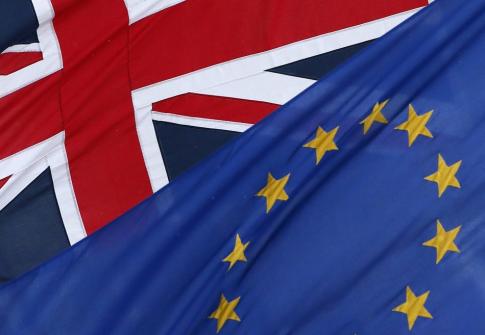Brexit: EU reveals no-deal plans

Brussels says the arrangements will be strictly time-limited, and will be ended without any consultation with the UK.
The European Commission says it has started to implement its preparations for a no-deal Brexit - in case the UK leaves the EU without a plan.
It has announced temporary measures to try to reduce the impact, but says it cannot counter all the problems it expects.
As PM Theresa May's proposed exit plan flounders in Parliament, both sides are preparing for the worst-case situation.
The UK has allocated £2bn ($2.5bn) in funding to government departments.
The European Commission's measures are designed to limit disruption in certain key areas, such as finance and transport, if Brexit goes ahead in March without a deal.
"These measures will not - and cannot - mitigate the overall impact of a 'no-deal' scenario," it said in a statement.
"This is an exercise in damage limitation," added commissioner Valdis Dombrovskis in a news conference, saying a contingency plan was necessary "given the continued uncertainty in the UK".
What are the European plans?
The commission's 14 measures cover legislation that will aim to ensure some continuity.
They address eight sectors, taking in issues such as transport and customs, data protection, animal health and plants, climate policy and key financial products.
Among other things, the measures would temporarily allow:
Flights from the UK into and overflying the EU to be allowed for 12 months to ensure "basic connectivity"
Hauliers to carry freight by road into the EU for a nine-month period without having to apply for permits
UK financial services regulations - in a limited number of areas such as derivatives trading - to be recognised as equivalent to the EU's for one or two years
The commission has also urged its 27 remaining member states to take a "generous" approach to the residency rights of UK citizens in the EU following a no-deal Brexit, "provided that this approach is reciprocated by the UK".
The Commission says these measures should not compare with EU membership, or the transition period on offer in the Withdrawal Agreement - which the UK Parliament has yet to vote on.
Deal or no deal - how are EU countries preparing?
Post-Brexit UK immigration system unveiled
Brussels says the arrangements will be strictly time-limited, and will be ended without any consultation with the UK.
And it warns that the following will occur from the date of a disorderly UK exit from the EU:
Transport of goods delays because of the need for checks on all UK livestock exports, and the application of customs duties and taxes on goods moving between the UK and EU;
End of the guarantee of the continuation of all existing air transport links under the same terms as they are supplied today;
Financial services operators in the UK lose the right to provide their services in the 27 EU member states under the EU financial services passports scheme;
EU pet passports issued to owners in the UK will no longer be valid
BBC Europe editor Katya Adler says Brussels will be keen to point out that these proposals are not in the UK's favour.
They are to protect EU member states from the more catastrophic aspects of Brexit if no deal is reached, our correspondent explains.
What does this mean for UK citizens?
Visas will not be required for UK citizens to spend short periods in EU countries, the commission said.
For stays of over 90 days, a residence permit or a long-stay visa will be required.
Member states have been told to take all necessary legislative and administrative measures so that temporary residence documents can be issued by the withdrawal date.
UK citizens who have lived in an EU state for a period of more than five years must be granted, subject to certain conditions, long-term resident status, the commission said.
This demonstrates where the EU has a limited remit. The proposals on UK citizens living in EU countries rely on the governments concerned because it involves areas of national - not European - power.




 del.icio.us
del.icio.us Digg
Digg

Post your comment